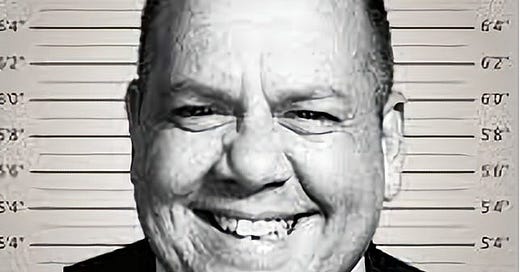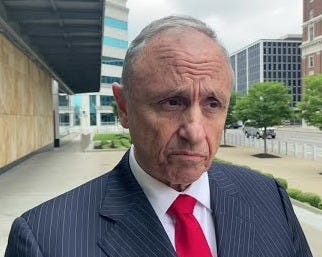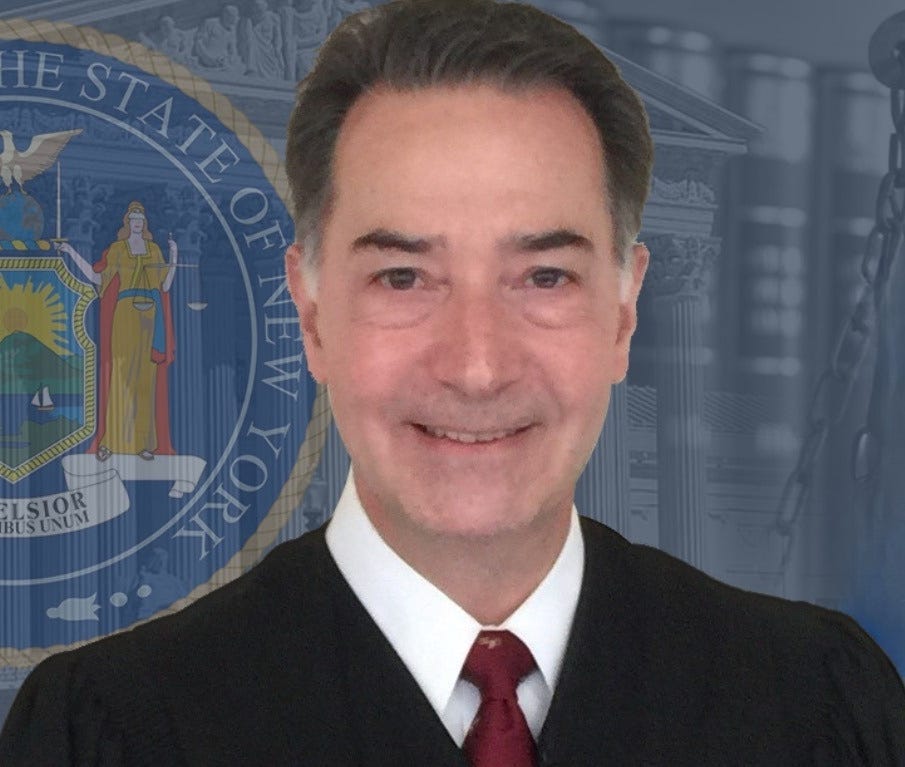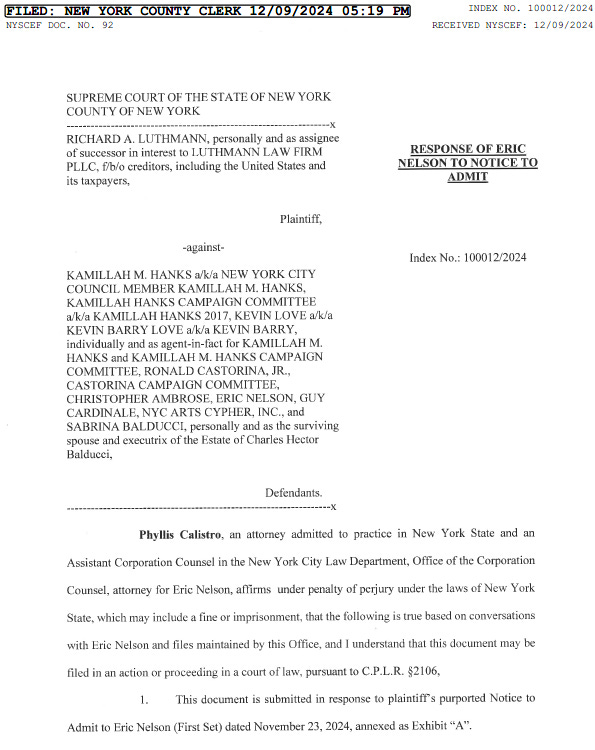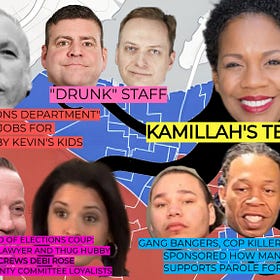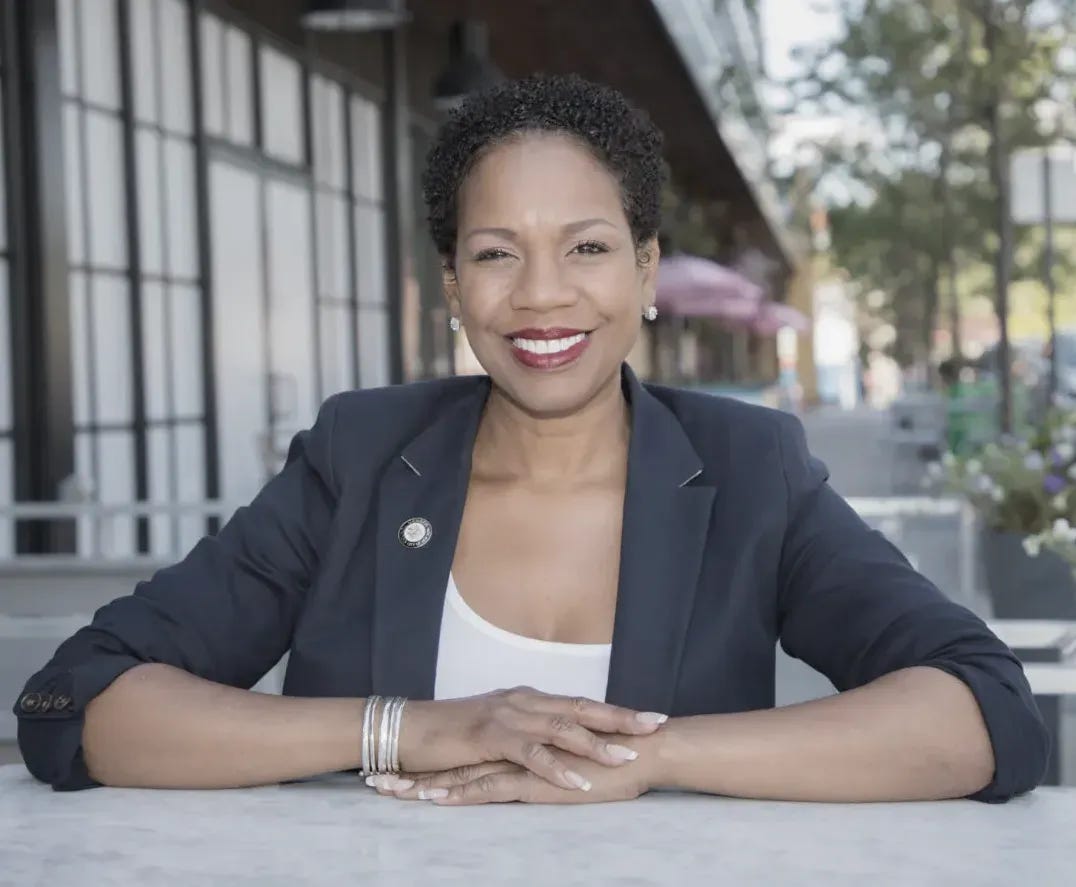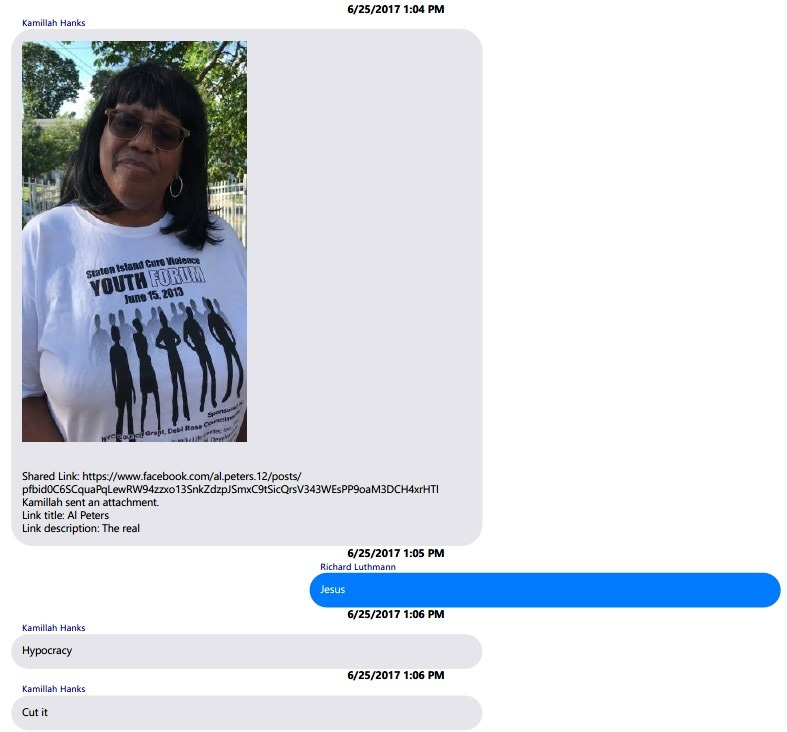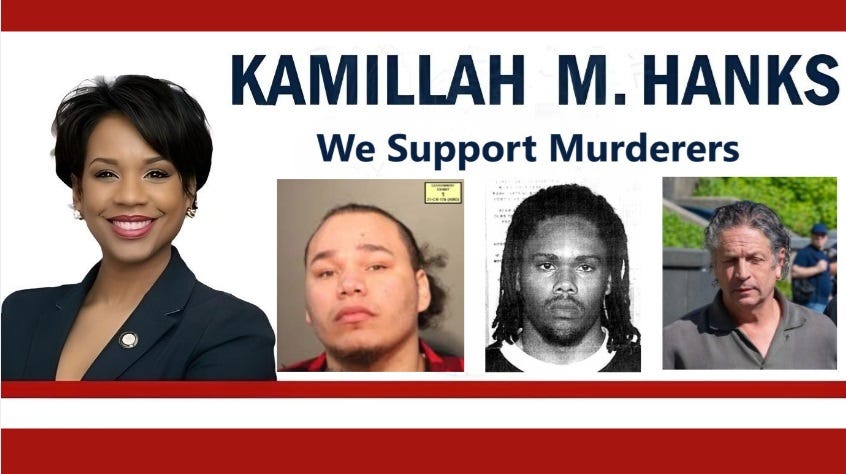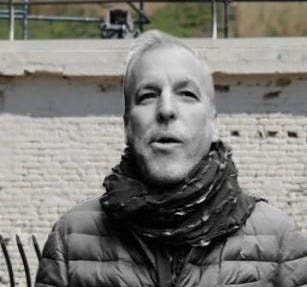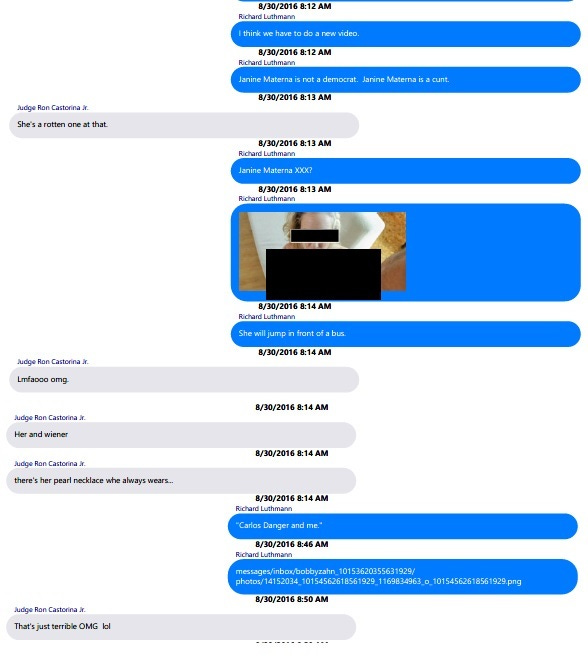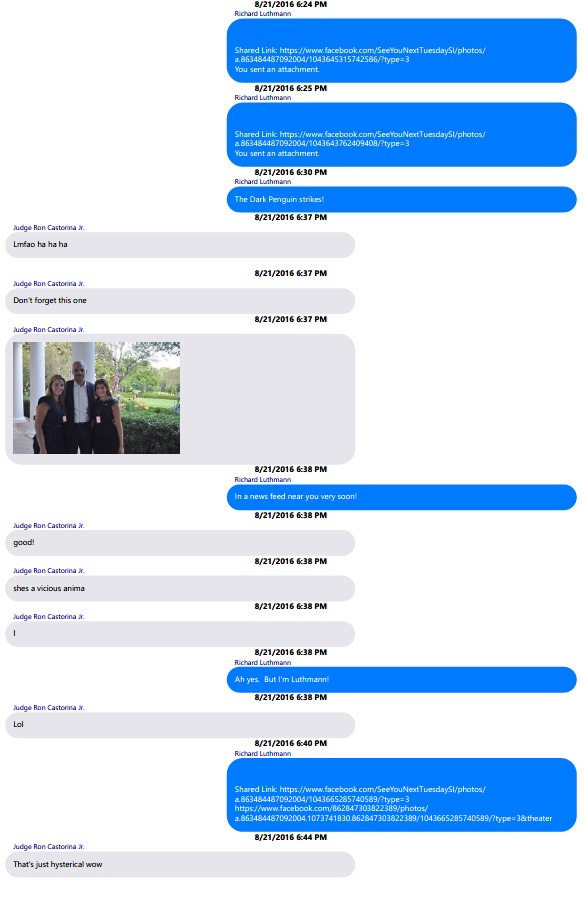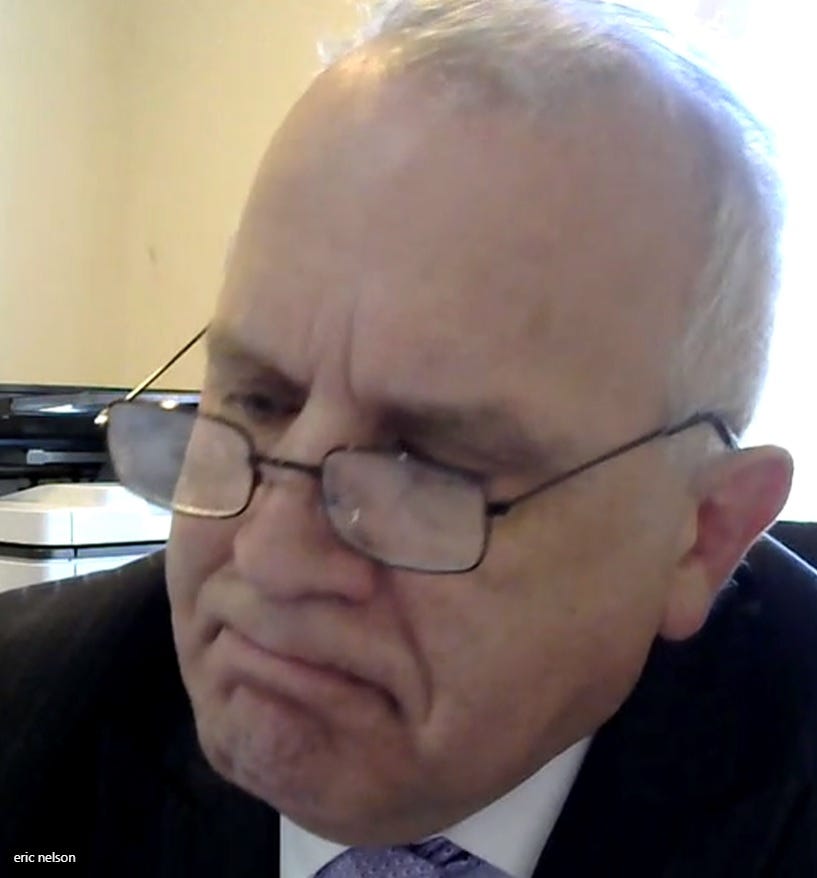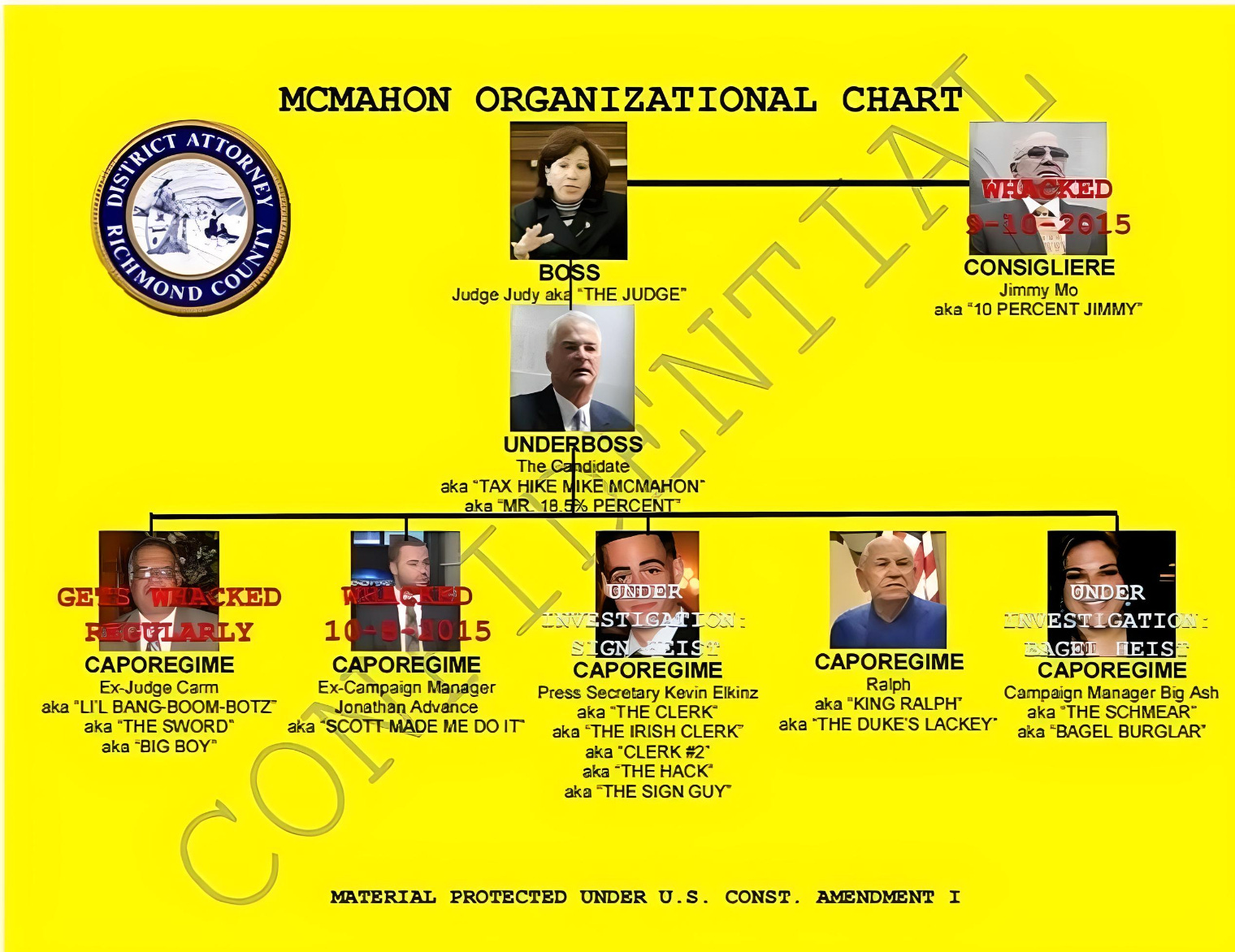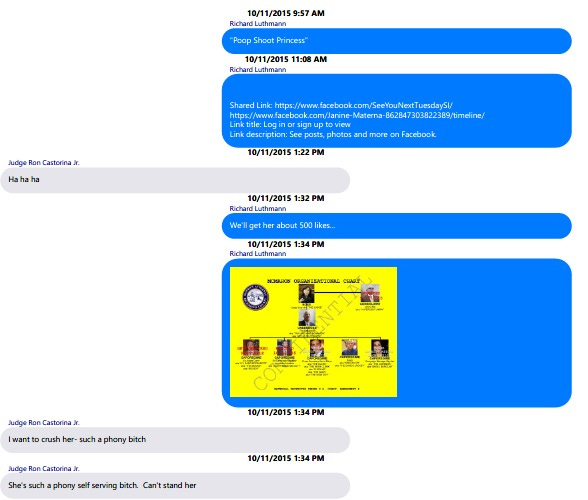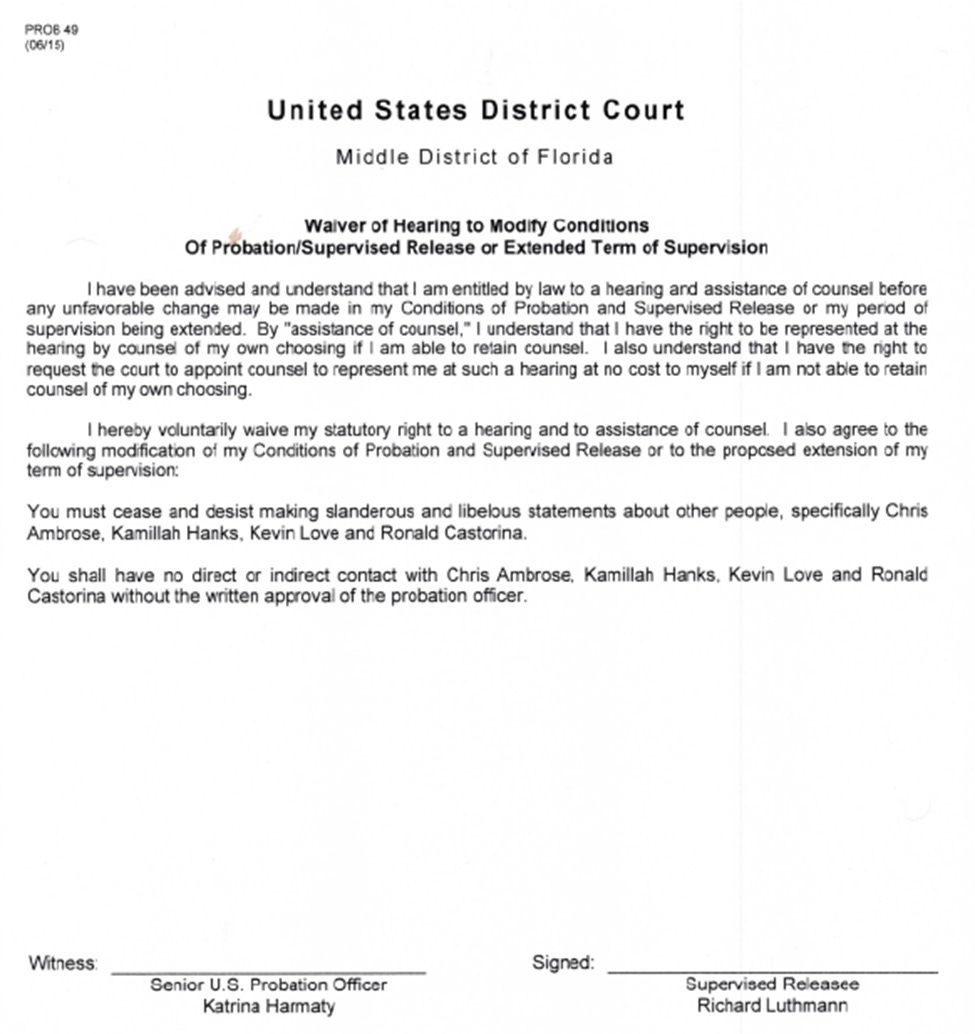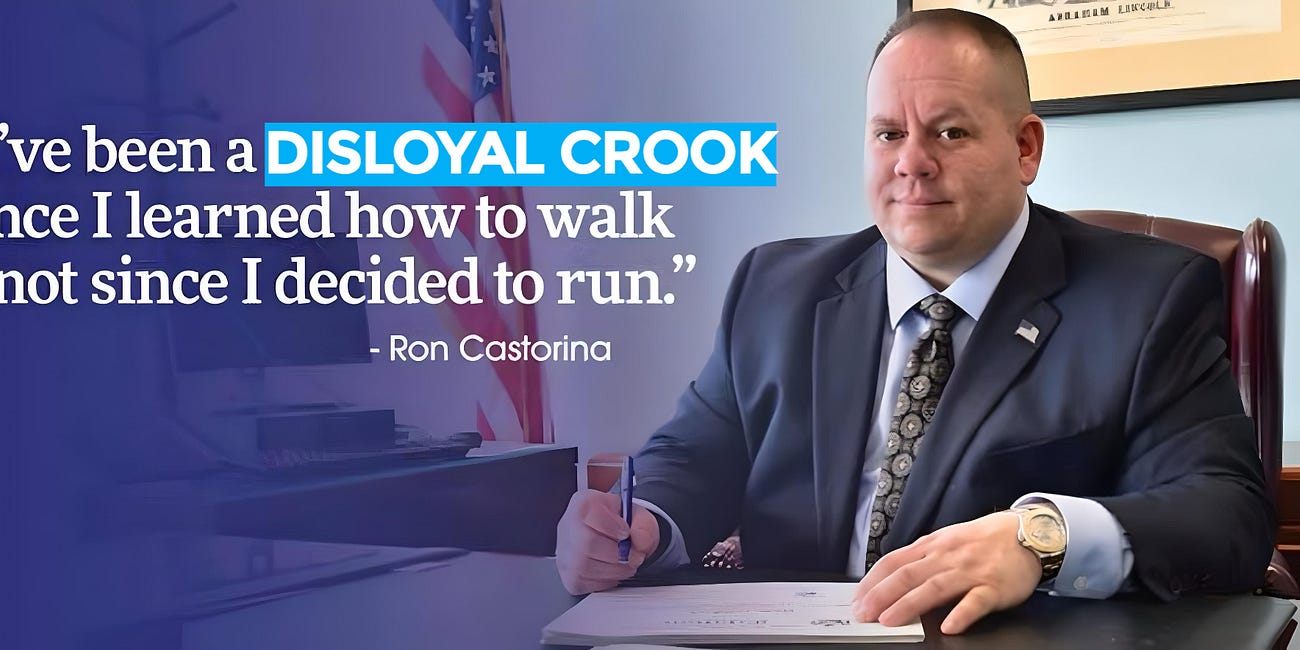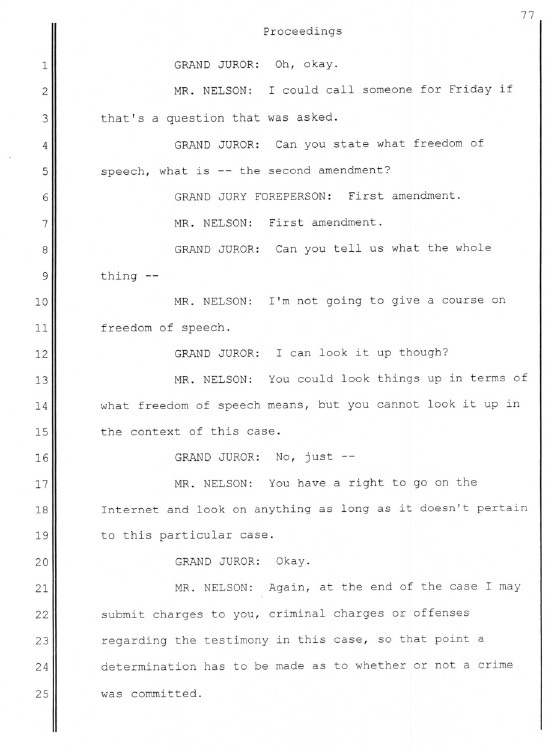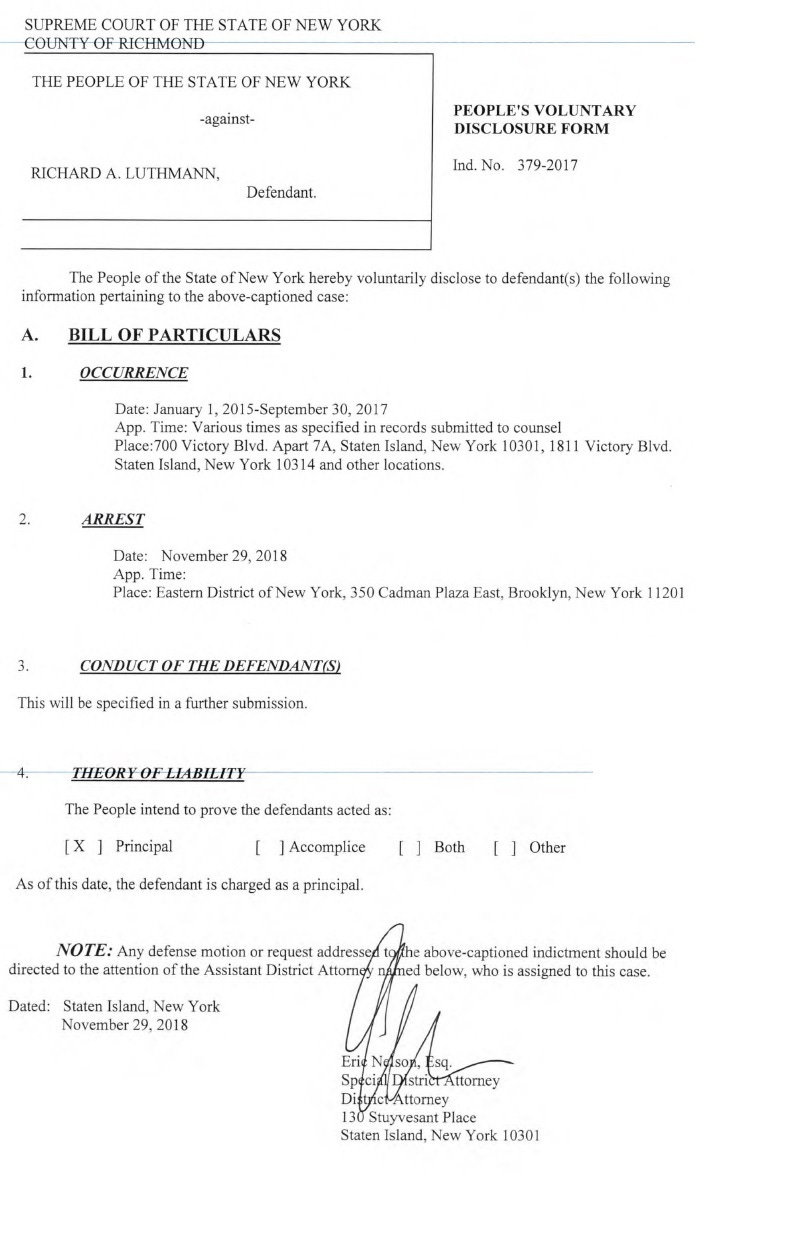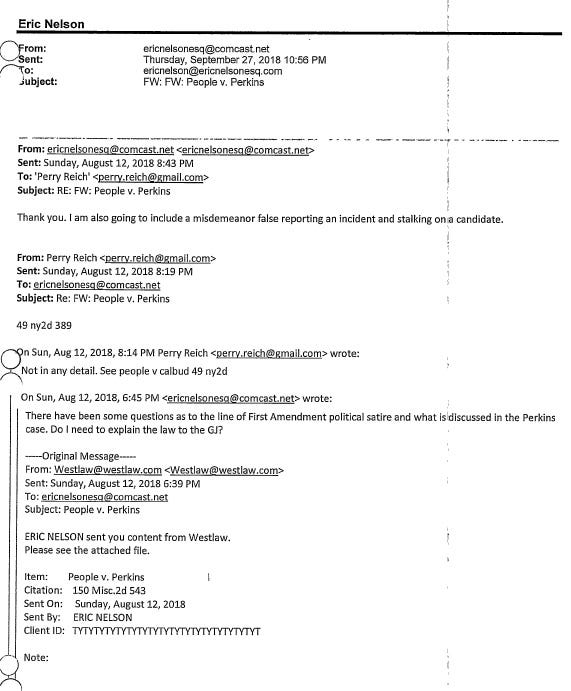BREAKING: Fake Facebook Fallout: Hanks, Castorina, Love Admit Guilt
Court admissions reveal NYC Councilmember Kamillah Hanks, Justice Ronald Castorina, and others implicated in fraud, conspiracy, and corruption.
By Dick LaFontaine and Frankie Pressman with Richard Luthmann
A case filed in Manhattan is already creating buzz about a “true crime” story involving a billion-dollar con artist named Guy Cardinale. While he’s “working,” he might introduce himself as “Frank Rossi,” a Yale and NYU Stern graduate with over forty years of Wall Street experience.
In an affidavit filed in Luthmann v. Hanks, former New Zealand Special Forces and current Private Investigator Adam Hamon meticulously documented how he tracked down and personally served Cardinale at a New York apartment on February 22, 2024.
From Special Forces to Fraud Sleuth: How Adam Hamon Unmasked a Notorious Conman
By Dick LaFontaine and Rick LaRivière with Richard Luthmann
Cardinale is a man suspected of being one of America’s most notorious fraudsters. Now, he appears to be on the payroll of the NYC FBI Office.
A six-time convicted felon with a sordid history of scams and cooperation with federal authorities, Cardinale was unmasked after years of fraudulent activity in both corporate and legal spheres.
This exposé was first broken by investigative journalist Frank Parlato on The Frank Report, with further revelations discussed by Michael Volpe and Richard Luthmann on The Unknown Podcast.
However, the case is also unearthing another scandal surrounding Staten Island's political elite. As this tangled web continues to unravel, the story surrounding NYC Councilmember Kamillah Hanks, hubby Kevin Barry Love, N.Y.S. Supreme Court Justice Ronald Castorina, and Special Richmond County District Attorney Eric Nelson could make Cardinale’s exploits look like child’s play.
Shocking Court Admissions
The deemed admissions of Councilmember Hanks, her “enforcer” hubby Kevin Barry Love, and Justice Ronald Castorina reveal a pattern of corruption, lies, and perjury.
Compounding this web of deceit are the denials by Special Prosecutor Eric Nelson, which have been undermined by substantial evidence, raising serious questions about his integrity and the fairness of the legal proceedings he oversaw.
The case, Luthmann v. Hanks et al., is presently before N.Y.S. Supreme Court Justice Louis L. Nock in Manhattan.
By responding to Luthmann's Notices to Admit, the NYC Corporation Counsel has effectively stripped Nelson, Hanks, Love, and Castorina of any plausible deniability to the former lawyer turned journalist’s pointed factual questions.
Luthmann contributes to this outlet and provided background, materials, and comments for this article.
The defendants' failure to adequately address the Notices to Admit leaves them legally vulnerable, as their silence is deemed an admission under New York law.
"All of these defendants are now in a precarious legal position," said a seasoned New York election lawyer, speaking on conditions of anonymity. "The Corporation Counsel’s responses and the other defendants' rejections make their legal and political strategy of ‘silence’ untenable."
This latest development highlights the systemic corruption entrenched within Staten Island’s political and legal framework.
Kamillah Hanks: Staten Island’s Master of Manipulation? Tentacles of Scandal Stretch Across North Shore
By M. Thomas Nast and Frankie Pressman with Richard Luthmann
From Hanks’ unlawful appointment of Michele Sileo and jobs for Kevin Barry Love’s kids at the NYC Board of Elections, to Castorina’s supplying of pictures for Luthmann’s fake Facebook pages and alleged perjury during grand jury proceedings, and Love’s role as an intimidating enforcer and government informant connected to drug dealer Ettore Mazzei, the evidence paints a damning picture.
“In addition to putting their continued service in elected office in jeopardy, Hanks and Castorina could have serious campaign finance issues and other liability,” the election lawyer said.
Nelson's denials further underscore the rot, as they clash with documented facts, calling into question his role as a prosecutor tasked with upholding justice.
These key players' legal and ethical repercussions loom as this saga unfolds.
Factual Admissions by NYC Council Member Kamillah Hanks
The Notices to Admit served upon Kamillah Hanks contain detailed allegations about her involvement in unethical and potentially illegal activities during her political career. Her failure to properly respond to these notices means these allegations are admitted under New York Civil Practice Law and Rules (CPLR) § 3123.
Below is a comprehensive list of deemed admissions based on the filed court documents:
Criminal Creation of a Fake Facebook Page
Hanks is deemed to have admitted her involvement in creating a fake Facebook page targeting Debi Rose during the 2017 Democratic Primary for NYC Council Member.Collaboration with Richard Luthmann
She is deemed to have communicated with Richard Luthmann regarding content and images for the fake Facebook page and instructed him to post specific content with editorial commands such as "Cut it." Luthmann served three years in prison for creating the page, which was deemed “election interference.”Underreporting Campaign Payments
Hanks admitted to authorizing $25,000 in cash payments to Luthmann for his work on the fake Facebook campaign and failing to report these payments to the NYC Campaign Finance Board (CFB) to avoid reporting requirements.Ballot Manipulation
She directed the removal of Phillipe R. Marius from the 2017 primary ballot and authorized legal challenges against Marius to lower his valid petition signatures below the required threshold.Tax Evasion Schemes
Hanks admitted to discussing strategies with campaign staff during her 2017 campaign to avoid proper tax reporting for consultants, including Jason Reynard.Campaign Finance Irregularities
She knowingly allowed her campaign treasurer, Lok Yung, to file incomplete or inaccurate financial disclosures with the CFB.Threatening Behavior via Kevin Barry Love
Hanks admitted to being present during discussions where Kevin Barry Love threatened Richard Luthmann's collections attorneys, using intimidation tactics to drop valid cases.False Reports to Federal Authorities
She is deemed to have communicated false information to federal agents regarding Luthmann’s alleged harassment or witness tampering.Support for Controversial Organizations
Hanks admitted her association with True2Life, an organization advocating for the parole of violent offenders, including cop-killers.Personal Benefit from Luthmann’s Services
During her 2017 campaign, she directly benefited from Luthmann’s legal and strategic services but failed to fully compensate him despite her reliance on his work.Smear Campaigns
Hanks was present at meetings where smear campaigns targeting political opponents were planned and executed, including discussions about creating fake narratives to discredit them.Conspiracy with Kevin Barry Love and Ronald Castorina
She conspired with Kevin Barry Love and Ronald Castorina to fabricate false narratives about Richard Luthmann’s activities, including influencing federal authorities.Knowledge of Federal Informants
Hanks admitted to knowing that Henry “Bobby Digi” Olisa is a federal informant, highlighting her awareness of and involvement with individuals engaged in dubious activities.Connections to Narcotics Dealer Ettore Mazzei
She is deemed to have had business dealings, including the purchase of narcotics, with known drug dealer Ettore Mazzei.
These admissions paint a damning picture of Kamillah Hanks’ conduct as a public official and political figure. By failing to deny or respond adequately, she has implicitly acknowledged a range of unethical and illegal activities, from campaign finance violations and ballot manipulation to personal gain through intimidation and smear campaigns.
Luthmann’s legal strategy leverages these deemed admissions to challenge the credibility and integrity of Hanks, potentially influencing public opinion and legal outcomes.
The revelations also provide a significant opportunity for Staten Island’s Democratic rank-and-file members to reclaim their party from what they perceive as corrupt leadership.
Factual Admissions by Kevin Barry Love
Based on the Notices to Admit and deemed admissions filed by Richard Luthmann against Kevin Barry Love, the following factual assertions have been deemed admitted due to a lack of denial or insufficient response. These admissions paint a comprehensive picture of Love's alleged involvement in various unlawful activities, abuses of power, and interference with justice:
1. Threatening Behavior and Interference with Justice
Threatening Phone Calls to Legal Counsel: Love admitted to making a threatening phone call to Richard Luthmann's attorney in April 2023. This call referenced New York City Mayor Eric Adams, the FBI, and the Department of Justice, aiming to intimidate the attorney into withdrawing representation.
Influence on Legal Proceedings: Love admitted to interfering with legal actions against both himself and Kamillah Hanks, using his position as Hanks's enforcer to manipulate outcomes.
False Accusations to Federal Agents: Love admitted to lying to federal agents in violation of 18 U.S.C. § 1001, falsely accusing Luthmann of harassment and witness tampering.
2. Involvement in Campaign Fraud and Intimidation
Fake Facebook Campaign: Love participated in creating and managing a fake Facebook page targeting political opponent Debi Rose during Hanks's 2017 campaign. He admitted to promising Luthmann $25,000 in cash for these services.
Underreporting Campaign Expenses: Love admitted to supporting and enabling the underreporting of campaign expenses for the 2017 Hanks Campaign. This included intimidating campaign consultants into accepting reduced payments for services rendered.
Threats to Consultants: Love coerced campaign consultant Michael Cox into accepting "ten cents on the dollar" for his unpaid $14,000 invoice, which was never reported to the NYC Campaign Finance Board.
3. Personal and Financial Misconduct
Mischaracterization of Legal Expenses: Love admitted to mischaracterizing family legal matters as business expenses on corporate tax filings.
Financial Harm to Luthmann: Love admitted that his actions, including malicious interference with debt collections, caused Luthmann economic harm.
4. Connections to Organized Crime and Federal Informants
Business Dealings with Criminal Figures: Love admitted to having business dealings, including purchasing narcotics, with convicted drug dealer Ettore Mazzei.
Role as an Informant: Love acknowledged his status as a federal informant, commonly referred to as a "RAT," and admitted to knowing Henry "Bobby Digi" Olisa, another informant.
5. Corruption and Nepotism
Employment at NYC Board of Elections: Love admitted that his children were employed by the NYC Board of Elections within the past year, raising questions about nepotism and misuse of public office.
Campaign Finance Fraud: Love’s factual admissions show a knowing dishonesty regarding Hanks’ filings with the NYC Campaign Finance Board.
6. Abuse of Public and Personal Relationships
Self-Proclaimed Role: Love admitted to publicly referring to himself as Hanks's husband despite having no formal marital relationship. This misrepresentation was part of his strategy to bolster his influence.
Role as Hanks’s Agent and Enforcer: Love confirmed his role as Hanks’s de facto agent and enforcer, leveraging this position to intimidate and control.
7. Defamation and Public Statements
Derogatory Statements about Luthmann: Love admitted to publicly calling Luthmann "mentally ill" in a New York Post interview.
Efforts to Discredit Luthmann: Love participated in coordinated efforts to spread false accusations against Luthmann, portraying him as a criminal without basis.
These deemed admissions collectively reveal a pattern of misconduct, including criminal behavior, corruption, and abuse of power.
As detailed, Kevin Barry Love's actions harmed individuals like Luthmann and undermined public trust in democratic processes and the integrity of Staten Island's political landscape.
Legal experts suggest these admissions provide significant grounds for further investigation and potential civil and criminal legal consequences. They also highlight the broader issue of accountability among public figures and those closely tied to them.
Factual Admissions by NYS Supreme Court Justice Ronald Castorina
The deemed admissions by Supreme Court Justice Ronald Castorina, based on the Notices to Admit and subsequent deemed admissions as reflected in filed court documents, highlight significant allegations of dishonesty, misuse of political influence, and misconduct. Here is an exhaustive breakdown:
1. Fake Facebook Campaign
Admitted Involvement: Castorina is deemed to have admitted involvement in creating a fake Facebook page targeting political opponent Janine Materna during the 2016 Republican Party primary.
Supplying Materials: Admitted to providing Richard Luthmann with photographs for the fake Facebook campaign against Materna.
Misrepresentation: Admitted to falsely denying involvement in the fake Facebook campaign despite documented communications.
2. Perjury and Misconduct
False Testimony: Admitted to lying under oath during Richard Luthmann’s 2018 grand jury proceedings and providing testimony contributing to Luthmann’s indictment.
Collusion with Prosecutor: Admitted to working with Special Prosecutor Eric Nelson to provide false testimony during the grand jury proceedings.
3. Political Smear Campaigns
Strategic Involvement: Admitted to providing strategic guidance on the content of fake Facebook posts, including using racially charged imagery to harm Materna’s campaign.
Concealment Efforts: Admitted to participating in discussions on covering up involvement in the fake Facebook campaign before the grand jury proceedings.
Discrediting Opponents: Admitted to efforts to discredit Luthmann and undermine his professional credibility.
4. Lying to Authorities
False Statements: Admitted to making false statements to federal authorities, violating 18 U.S.C. § 1001.
Media Misrepresentation: Admitted to lying about his relationship with Richard Luthmann in media interviews to distance himself from the fake Facebook scandal.
5. Political Influence and Nepotism
Abuse of Power: Admitted to using his political position to influence the outcome of Luthmann’s indictment and shield himself from investigations related to the fake Facebook campaign.
Personal Gain: Admitted to personally or politically benefiting from actions against Luthmann.
6. Hindering Justice
Evidence Withholding: Admitted to intentionally withholding evidence during legal proceedings involving Luthmann.
Fabricated Accusations: Admitted to fabricating allegations of harassment and witness tampering against Luthmann to interfere with his federal supervised release.
7. Subversion of Justice
Omissions in Testimony: Admitted to omitting critical details about his involvement in smear campaigns during the 2018 grand jury testimony.
Encouraging Deception: Admitted to directing others to lie about his role in the fake Facebook campaigns.
8. Political Campaign Violations
Illegal Campaign Activities: Admitted to failing to report involvement in political campaign activities to appropriate authorities.
Racially Charged Tactics: Admitted to providing a photograph of former Attorney General Eric Holder for misleading and racially inflammatory posts targeting Materna.
Implications of Deemed Admissions
These admissions paint a damning portrait of misconduct, abuse of power, and dishonesty by Justice Ronald Castorina. By refusing to respond directly to the Notices to Admit, Castorina has allowed these allegations to stand unchallenged, effectively conceding their validity under New York law. This undermines public confidence in his judicial role and raises serious ethical and legal questions about his continued fitness to serve on the bench.
Denials by Special Prosecutor Eric Nelson
In response to Richard Luthmann's Notices to Admit, Eric Nelson denied allegations regarding misconduct during the prosecution of People v. Luthmann.
Below are the main denials:
1. Misconduct in Grand Jury Proceedings
Denied knowingly permitting false evidence to be presented.
Denied being aware of false testimony provided by co-defendant Ronald Castorina.
Denied instructing or encouraging witnesses to provide false or misleading testimony.
Denied failing to disclose exculpatory evidence.
Denied conspiring with others, including Castorina, to secure a conviction through unlawful means.
Denied knowingly allowing inadmissible evidence to be introduced.
Denied failing to supervise or review actions of individuals involved in the grand jury proceedings.
Denied knowingly using testimony from unreliable or biased witnesses.
Denied taking no corrective action after being informed of false testimony.
2. Constitutional Violations
Denied violating Richard Luthmann's constitutional rights during the prosecution.
Denied restricting Luthmann's First Amendment rights during supervised release.
Denied advising federal probation officers to impose restrictions on Luthmann's journalistic activities.
Denied failing to inform grand jurors about First Amendment protections for political satire.
3. Legal and Ethical Misconduct
Denied seeking legal advice from disbarred attorney Perry Reich and allowing him to play an advisory role.
Denied misrepresenting material facts in court filings.
Denied withholding documentation during discovery.
Denied failing to disclose all communications with Staten Island District Attorney Michael McMahon.
Denied fabricating evidence or collaborating to suppress evidence favorable to the defense.
4. Involvement with Co-Defendants
Denied coordinating with Michael McMahon or Ronald Castorina to influence grand jury proceedings.
Denied discussing strategies with co-defendants to implicate Luthmann using false testimony.
Denied participating in efforts to conceal the creation of fake Facebook pages.
5. Financial Impropriety
Denied receiving payments exceeding $400,000 during the prosecution of Richard Luthmann.
Perjury by Eric Nelson?
Despite the denials, the evidence, including court documents, public records, and prior sworn testimonies, indicates the following contradictions:
1. False Testimony Allegations
Nelson denied being aware of false testimony provided by Castorina during grand jury proceedings. However:
The 2018 grand jury transcripts show that Castorina's testimony contradicted publicly available evidence and prior sworn statements.
Nelson's role as the supervising prosecutor indicates he either willfully ignored these inconsistencies or knowingly allowed them.
2. Suppression of Exculpatory Evidence
Nelson denied failing to disclose exculpatory evidence. Yet:
Defense filings in People v. Luthmann cite multiple instances where exculpatory material, including communications between defendants and the legal applicability of the First Amendment, was omitted.
This omission violates many constitutional requirements, including Brady v. Maryland, which mandates the disclosure of evidence favorable to the defense and the Prosecutor’s obligations before the grand jury.
3. Misrepresentation of Facts
Nelson denied misrepresenting facts in court. However:
Court filings allege that Nelson knowingly presented altered timelines and fabricated connections to bolster charges against Luthmann. Nelson swore Luthmann had no co-conspirators. Hanks, Love, and Castorina have now admitted they conspired with Luthmann to make the fake Facebook pages.
Luthmann's discovery unearthed discrepancies between Nelson's assertions and verified facts, further confirmed by the recent factual admissions by Castotina, Hanks, and Love.
4. Unauthorized Practice of Law
Nelson denied seeking advice from disbarred attorney Perry Reich. Nonetheless:
Internal communications reveal Reich’s advisory role during critical phases of the grand jury.
Such involvement constitutes unauthorized legal practice and undermines the integrity of the proceedings.
5. Coordination with Michael McMahon
Nelson denied coordinating with McMahon to manipulate grand jury outcomes. However:
Luthmann says testimonies and internal memos will indicate frequent consultations between Nelson and McMahon regarding the legal and political ramifications of prosecuting him.
McMahon's involvement further suggests the politically motivated agenda of McMahon and his N.Y.S. Supreme Court Justice wife rather than a pursuit of justice.
Juxtaposed with the overwhelming documentary evidence, Eric Nelson's denials indicate clear instances of perjury. His refusal to acknowledge these actions undermines his credibility and raises serious ethical and legal questions about his role as a prosecutor.
The evidence points to deliberate misconduct, warranting further investigation and potential criminal charges against Nelson.
A Call for Accountability
The systemic corruption exposed in Luthmann’s filings underscores the urgent need for accountability at all levels of New York’s political and legal structures. These revelations demand a thorough investigation by independent authorities to restore public trust and ensure justice.
As this case unfolds before Justice Louis L. Nock, it represents a pivotal moment for Staten Island and the entire New York State Political and Court systems. There exists a rare opportunity to send a clear message: corruption, lies, and abuse of power will not be tolerated, no matter how high the position of those involved.
For Luthmann, this case is more than a legal battle; it is a fight to illuminate New York’s dark corners and restore power to the people.
“I truly hope we are at the final stop on this ‘hell-bound train.’ All I know is that after January 20, the package will officially be delivered to the Trump Justice Department. Informal overages have already been made,” Luthmann said.
The admissions and denials in this case reveal not only individual misconduct but also a symptom of a larger problem that demands systemic reform.
“Maybe the Trump Administration needs to clean house in the N.Y.S. Courts. God knows the President-Elect, over half the country, and I all feel the same way about Crooked New York justice, so maybe they won’t be able to self-regulate anymore in the face of apparent systemic corruption,” he said.
As New Yorkers reflect on these revelations, they must ask themselves: Are these the leaders they want representing them? If not, what steps will they take to reclaim their democracy from those who have betrayed it?


